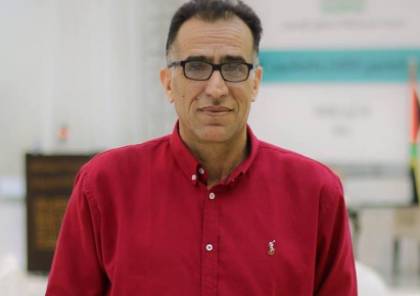(Salam) Trump is not the peace the world seeks
Al-Khamisa News Network - Gaza

By Dr. Ibrahim Ibrash
On January 21, 2017 we published an article entitled (Peace — this elusive term). Its introduction said: “As much as the term peace implies a moral and ethical value and an aspiration longed for by all people individually and collectively, it is a slippery and ambiguous term. How many crimes were committed in its name and under its banner, how many rights were violated, how many states fell and others rose, how many ideologies collapsed and others prevailed, how many wars and sectarian conflicts were ignited in the name of peace, and how many ‘peace’ agreements were signed by hands stained with blood.” On August 8, 2020 we wrote an article entitled (The Assassination of Peace in the Name of Peace) following the normalization of relations between Israel and the United Arab Emirates and Trump’s claim that this step would advance a just and comprehensive peace in the region. We have since seen what followed the recent wave of normalization, and we have published other pieces on the subject.
We recall those articles as we follow the contradiction between Trump’s rhetoric about peace in his latest initiative concerning the Gaza war and his concept of a Palestinian state on one hand, and the Palestinian and majority international understanding of peace and of a Palestinian state as a principal condition for achieving a just peace on the other.
President Trump talks about peace and presents an initiative to achieve it while ignoring the principal party in the equation that will make peace possible — the Palestinian people and their legitimate representatives, the State of Palestine and the Palestine Liberation Organization. The peace he means is peace for Israel and the safeguarding of American interests, not for the Palestinian people and the peoples of the region. Even when he hinted in his initiative at the possibility of opening a path toward a state, he did not mean a state in the West Bank and Gaza Strip with East Jerusalem as its capital — the East Jerusalem that 159 countries recognize as the capital of the State of Palestine. Had he meant that state, his initiative would have aligned with the will of the majority of the world’s nations and would have recognized or at least given a role to that state and its authority instead of excluding it from and not even consulting it about the initiative.
Anyone who examines the twenty clauses of the initiative will clearly see that they are wholly incompatible with the peace Palestinians and the world want. They entrench the separation of Gaza from the West Bank and give Israel freedom to intervene militarily in the Strip as it pleases, while also allowing it to continue settlement activity in the West Bank. Even if the initiative says it opposes annexation of the West Bank, continued settlement will ultimately lead to de facto annexation without an official declaration. Declaring opposition to annexing the West Bank serves as bait to lure states into accepting his initiative and to pave the way for expanding the “Abrahamic Peace” — or what he calls interfaith dialogue, as stated in the initiative — all of which closes the road to the establishment of an independent Palestinian state on the 1967 borders with East Jerusalem as its capital.
Some may ask: why did the majority of the world’s countries, including the State of Palestine and even many people in the Gaza Strip, welcome Trump’s initiative?
In my view, the reason is that everyone knows President Trump is the only party who can pressure Israel to agree to a truce and a temporary ceasefire in Gaza, which would mean an end to the daily death toll in the dozens among Palestinians, a halt to famine and systematic destruction, and a freeze to the plan for forced and collective displacement. From this humanitarian standpoint they engaged with Trump’s plan. Perhaps also because they have no real ability to do anything beyond recognizing a Palestinian state that currently has little control over its own affairs, and they cannot help stop the famine and deaths in the Gaza Strip, which is part of the desired state. We can add that most countries doubt the success of Trump’s plan even if they formally accept it, because Israel is unlikely to abide by it. Why, then, should they be the ones to reject it? They also know that even if the initiative were implemented and both Israel and Hamas formally agreed to it, it would not achieve a comprehensive and just peace.
His hint in clause 19 at the possibility of a Palestinian state may be preparing for a state in the Gaza Strip under the temporary guardianship of a “Peace Council” to administer the Strip under his chairmanship and that of the internationally mercenary “fox,” Tony Blair, the former British prime minister. After that phase, the plan could return to a scheme of a Gaza state stripped of arms and national identity following the liquidation of the Palestinian Authority’s presence in the West Bank.
As for the relief among residents of the Strip at the initiative, one should not blame the people of Gaza if they accept any proposal that stops the hunger, death and daily humiliation in obtaining food — they are like a drowning person clutching at a straw. Political and strategic issues are not their concern now; they are the responsibility of Hamas, the other party in the war, which helped bring the Strip to its current state, and the responsibility of those who aided and misled it, notably Qatar, Turkey, Iran and the Muslim Brotherhood, as well as the State of Palestine and the countries that recognized it.






